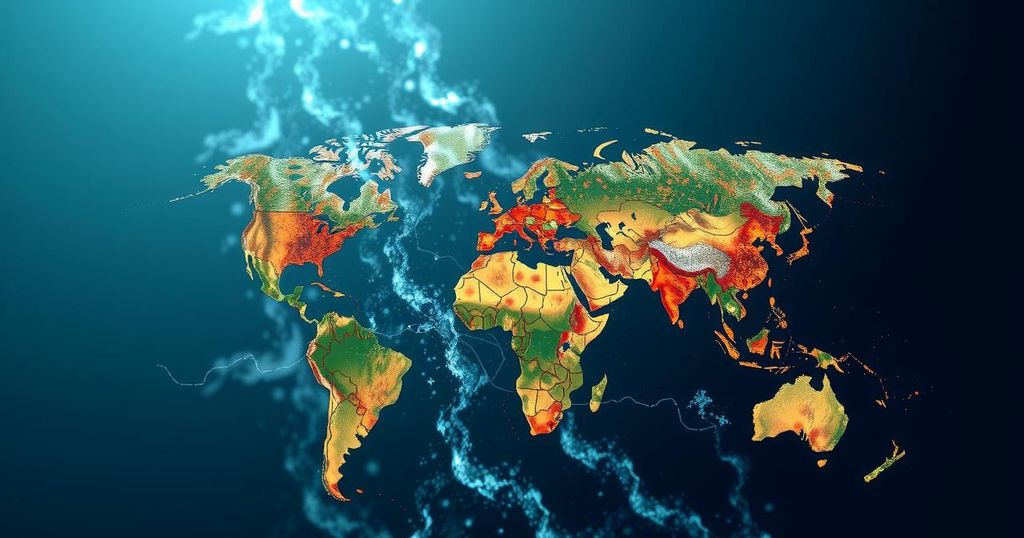A study in Nature Climate Change reveals that Google Image Search results for “climate change” vary by country, reflecting local sentiments. High-concern nations show images that evoke emotional responses and supportive attitudes toward climate action, while low-concern regions display neutral images. The research highlights the need for better algorithms to accurately depict climate realities, ultimately fostering global awareness and impactful solutions.
A recent investigation featured in Nature Climate Change reveals that the images displayed in internet search results for “climate change” can differ significantly based on the viewer’s location and prevailing perceptions. For instance, in Argentina, where the populace faces severe wildfire threats, search results are dominated by images of burning structures, illustrating a high level of concern. Conversely, Estonian users encounter more neutral visuals such as icebergs and polar bears, which render climate change as a distant issue. Madalina Vlasceanu, the senior study author and Assistant Professor at Stanford Doerr School of Sustainability, emphasizes that accurate image representation is essential for global awareness and responses to climate issues. The research involved analyzing the images presented in Google Image Search across 49 countries, assessing their emotional impact and resultant influence on public support for climate action. It was noted that nations with existing high concern for climate change had stronger emotional responses to depicted images, as opposed to countries experiencing severe climate effects. In a subsequent experiment, nearly 900 participants were exposed to a range of climate-related visuals relevant to nations with varied concerns. The findings revealed that individuals who viewed images commonly seen in countries with high climate apprehension felt more threatened and expressed greater support for policy changes. Michael Berkebile-Weinberg, a postdoctoral scholar involved in the study, stated that depicting climate change accurately can significantly alter public sentiment. Vlasceanu argues for improved algorithms that genuinely represent climate realities to better educate the global populace about climate risks and motivate appropriate actions. The research underscores the importance of interdisciplinary collaboration among behavioral scientists, policy makers, and technology developers to synergistically address climate challenges. Currently, Vlasceanu is expanding her research to focus on the cognitive, social, and political obstacles hindering climate action progress, including how collective societal perception can diminish decisive initiatives against climate change.
The study discussed examines how image search algorithms influence public perception and emotional responses regarding climate change. By analyzing the contrast in images offered by Google Image Search based on geographic and cultural contexts, the research reveals a correlation between prevailing societal sentiments and imagery representation. In particular, it addresses how subjective interpretations of climate phenomena can hinder collective action, emphasizing the need for objective representations in search algorithms to inform and motivate necessary global responses.
The findings from the research affirm that image search results play a critical role in shaping public attitudes towards climate change. By illustrating how differing national concerns lead to varied imagery, the study underscores the potential for improved search algorithms to enhance global awareness and encourage proactive solutions. Further interdisciplinary collaboration will be vital in driving innovation and effectively confronting the challenges posed by climate change.
Original Source: news.stanford.edu






